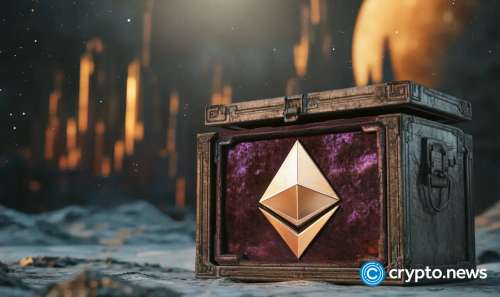Cryptocurrency investments can be highly lucrative but also incredibly risky. Thousands of crypto projects are flooding the market, vying for the attention of crypto investors. But how do you determine which ones are worth your time and money?
This guide will walk you through the essential steps on how to evaluate a cryptocurrency project, so you can distinguish promising projects from potential scams.
Understand the Project Vision
Analyzing a crypto project starts with knowing its vision. A project with a clear, reasonable vision has a better chance of success. Look for projects with a clearly stated goal and a solution to a practical problem. Does the aim of the project strike you as straightforward and well defined? Does the project close a major market gap or issue?
The viability of the project's vision using the current resources and technology is also crucial. The goal should be realistic and founded in reality, so it is reachable within a fair period rather than too ambitious.
Examine the Team Behind the Project
The potential of a crypto project often reflects the power of its team. See the team as the engine propelling the project ahead. A varied team with knowledge in blockchain, finance, and pertinent disciplines might be a strong sign of a project's capacity to be successful.
Look at their past track records to find out whether they have a history of keeping their word. Transparency and honest communication with the community underline a team's commitment and dependability.
Evaluate the White Paper
A project’s white paper is its blueprint. It should detail the project’s goals, technology, use cases, and tokenomics. A thorough and well-written white paper is a good indicator of a project's legitimacy and potential.
Also, make sure the white paper is not too complicated. It might not be worthwhile to put your time and money into a project if the white paper is too vague or uses a lot of words that you do not understand.
Assess Market Potential and Use Cases
Market potential and practical use cases determine a project's long-term viability. A project addressing a significant market need is more likely to gain traction.
Look into the specifics, such as:
- Does the project solve a pressing issue?
- Who is the target audience, and how large is the market?
- How does this project differentiate itself from others?
In the cryptocurrency space, a project has little chance of success if it attempts to address an issue that neither exists nor has been addressed by another project.
Tokenomics
Another way to evaluate a cryptocurrency project is the economic model of the token, or tokenomics. Crypto investors should be aware of the possible value development of a token as well as its usage.
Token distribution and supply should be open and equitable, with a well-defined strategy for their usage inside the ecology. Furthermore, as it will affect its long-term value, you should know if the token is meant to be deflationary or inflationary.
Roadmap and Milestones
A well-defined, reasonable road map helps one understand the future directions of the project and its expansion possibilities. It clarifies for investors the actions the team will follow to reach their objectives.
The route map should clearly show reasonable targets and benchmarks, guiding their accomplishments. Frequent team progress reports help to show their dedication to the project and their capacity to satisfy deadlines.
Conclusion
Investing in cryptocurrencies requires thorough research and due diligence. Always consider the project’s vision, team, white paper, market potential, tokenomics, and roadmap before investing. Remember, the key to successful investing is not just finding the next big thing but also understanding how to evaluate a blockchain project effectively.




